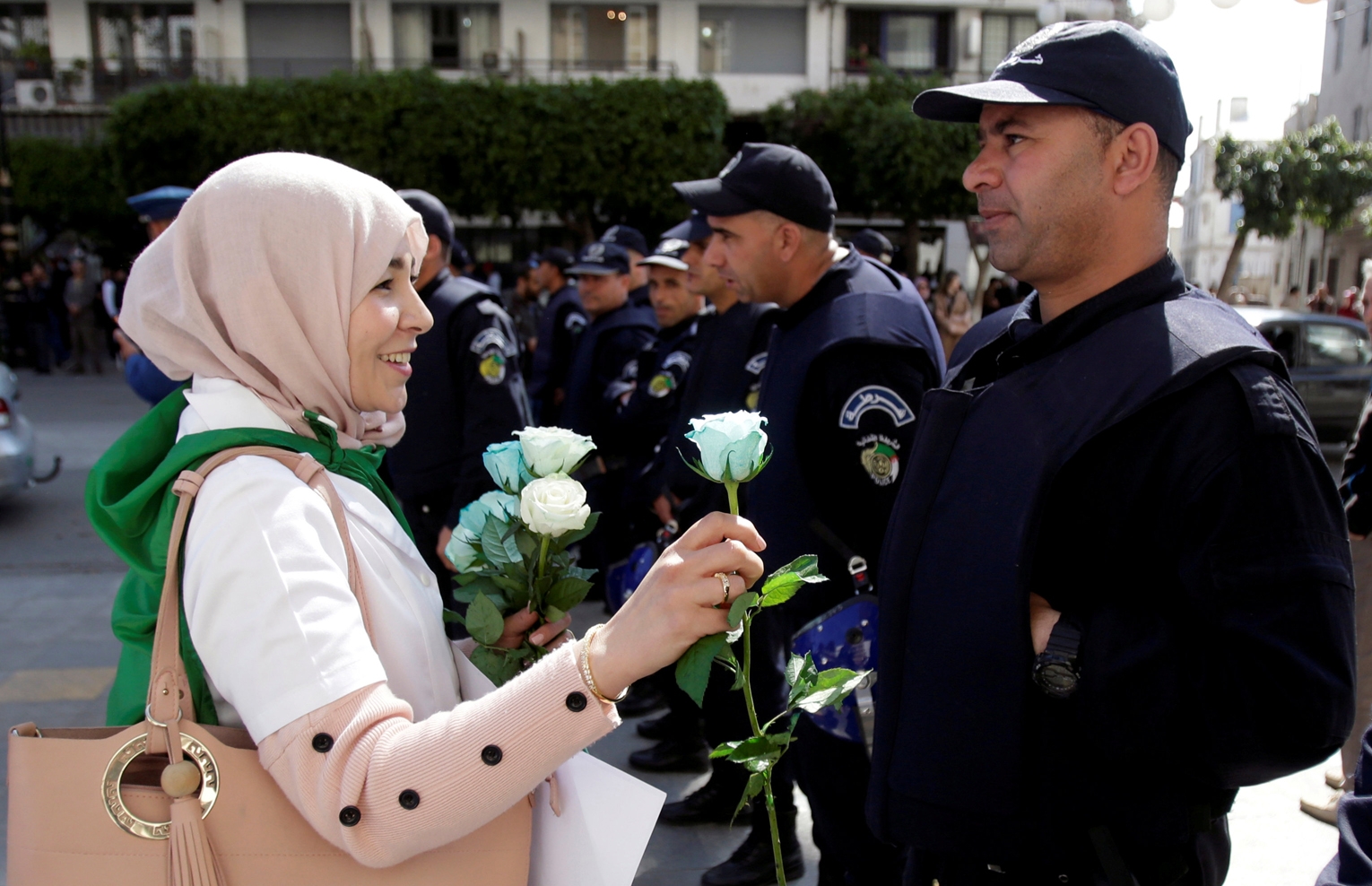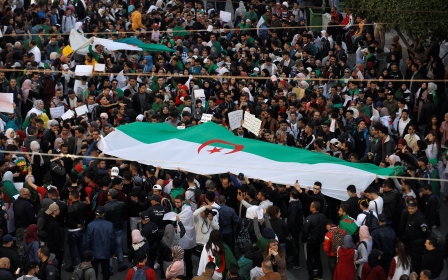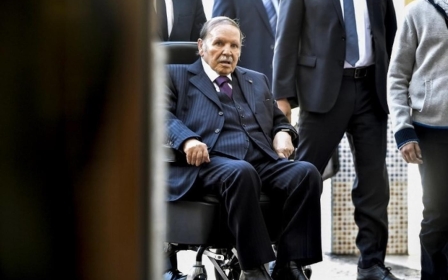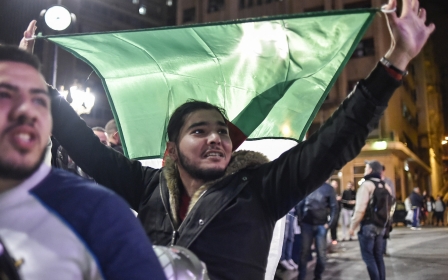Top Algerian official offers dialogue with protesters as demonstrations continue

A top Algerian government official said the government hopes to start a dialogue with protesters as leaders of the demonstrations expressed an unwillingness to negotiate and high-profile war veterans joined the opposition.
"Dialogue is our duty. Our top priority is to bring together all Algerians," Deputy Prime Minister Ramtane Lamamra told state radio on Wednesday, according to a Reuters report.
"The new system will be based on the will of the people," he added.
According to a Wednesday Algerian Press Service report, a state-run local outlet, Lamamra also said that the country's parliament will not dissolve.
“The president of the republic said in his last message to the nation that the current institutions will continue to work normally,” he said.
New MEE newsletter: Jerusalem Dispatch
Sign up to get the latest insights and analysis on Israel-Palestine, alongside Turkey Unpacked and other MEE newsletters
One prominent protest leader said talks were not on the agenda, at least for now.
"We refuse to negotiate transition with the regime. No negotiations," university professor Fodil Boumala told Reuters.
In an unusual sign of a rift within the political elite, a prominent independence war veteran described President Abdelaziz Bouteflika's plan for political transition as a "coup d'etat".
Former guerrilla fighter Djamila Bouhired said Algeria's post-independence governments had continued to be subject to what she called France's tutelage, something she said was illustrated by French President Emmanuel Macron's support for Bouteflika's initiative.
"The latest revealing sign of these perverse links of neocolonial domination, the support of the French president for the coup d’etat programmed by his Algerian counterpart is an aggression against the Algerian people..." she wrote in a letter to El Watan daily, Reuters said.
A mass protest is planned in Algiers for Friday, Reuters reported.
Continued strikes
On Wednesday, schoolteachers, lawyers and civil servants held strikes and sit-ins in several cities across the country to call for better economic opportunities, APS said.
They demonstrated in the northwest city of Constantine and in the eastern city of Setif.
Protesters in Setif held signs that read, “No to an extension of the fourth mandate” and “no to reconciliation, yes to change,” APS reported.
On Monday, Bouteflika announced that he will not be running for a fifth term as president.
He also said he would postpone the country's presidential elections, which were originally scheduled for 18 April.
Algerians of all ages have protested across the country for the past several weeks in anger over the 82-year-old leader's plan to seek reelection.
Bouteflika's attempt to secure a fifth mandate, after two decades in power, pushed tens of thousands into the streets to call for his resignation.
Meanwhile, countries including Russia and Canada have called for a "national dialogue" in the North African country.
Moscow has previously delivered weapons to Algeria and considers the nation to be an ally.
"We hope these problems will continue to be resolved in a constructive and responsible manner, a national dialogue," Russian foreign ministry spokeswoman Maria Zakharova said in a statement late on Tuesday, according to an AFP report.
"The events in Algeria are a purely domestic affair of a country that is friendly to Russia," Zakharova added.
Canada on Wednesday urged Algeria to quickly set a new date for a presidential election.
"Canada supports democratic, free and fair elections in Algeria and stands ready to support this effort," Canada's foreign ministry said in a statement.
"We encourage the Algerian government to set a new date for elections without delay," it said, adding that the people of Algeria must be allowed to decide how they will be governed, including choosing a president.
Middle East Eye delivers independent and unrivalled coverage and analysis of the Middle East, North Africa and beyond. To learn more about republishing this content and the associated fees, please fill out this form. More about MEE can be found here.





